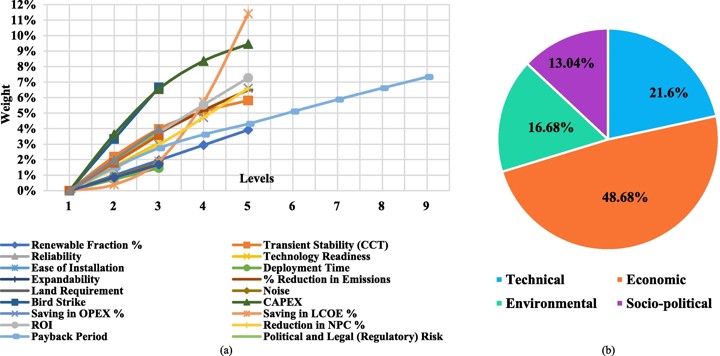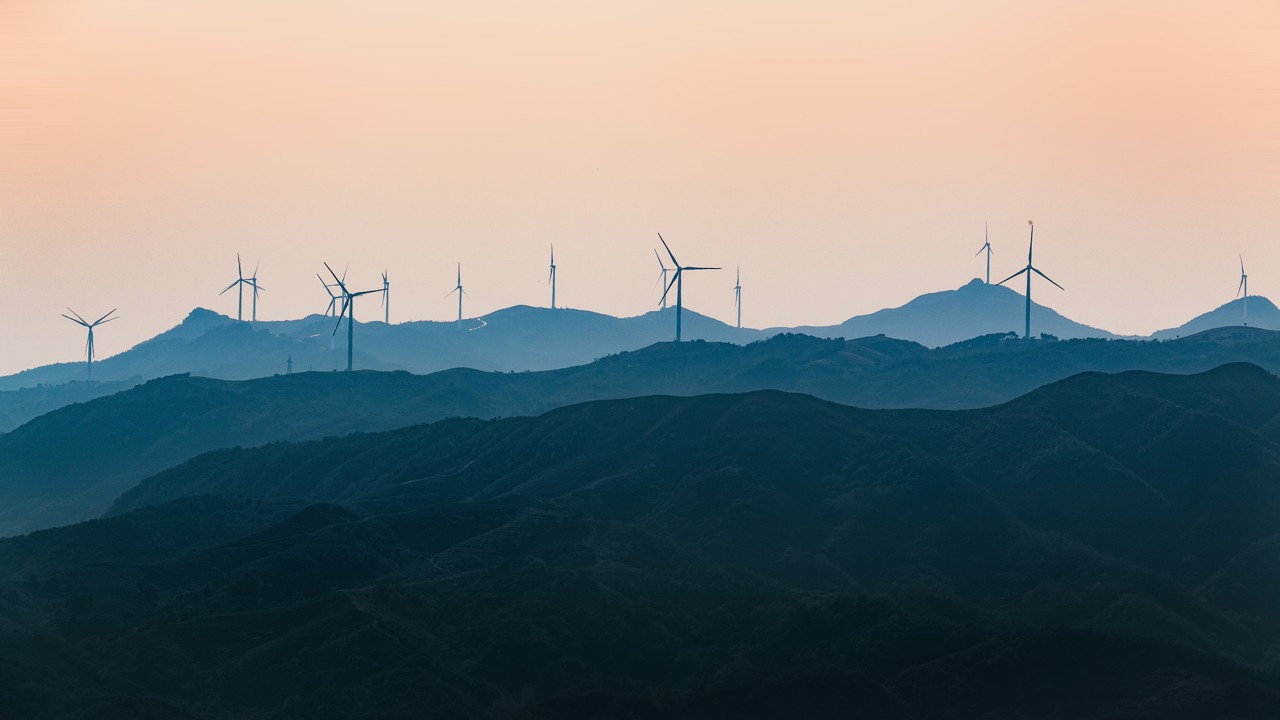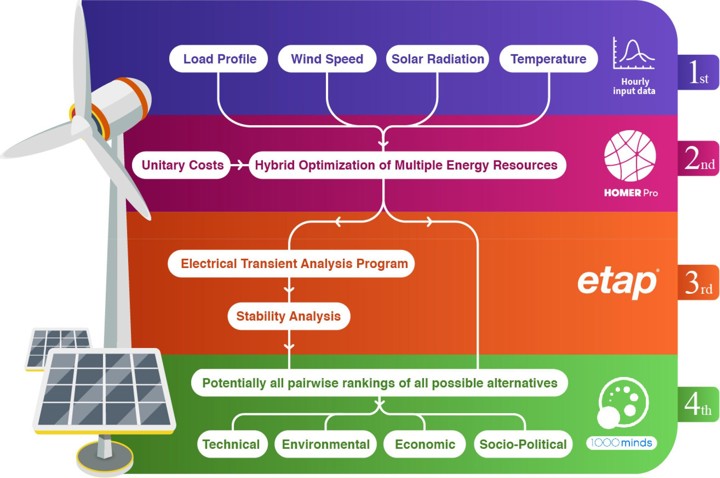New research uses 1000minds’ PAPRIKA method to evaluate alternative approaches to decarbonizing electricity generation in Egypt by using hybrid technologies based on wind, solar and fossil fuels (to be phased out) for large-scale industrial applications.
Published in Journal of Energy Conversion and Management, the study focuses on the Abu Rudeis oil and gas complex on Egypt’s Sinai Peninsula.
The study is especially noteworthy because of its focus on a large-scale industrial application, in contrast to most other studies which focus on residential or other non-industrial applications. Industrial energy demands are the most challenging to satisfy with renewable energy due to their required consistency throughout the day and the intermittent nature of most renewable energy.
Abu Redeis started producing onshore oil in 1953 and offshore gas in 1976 and each day yields around 68,000 barrels of oil and 19 million cubic feet of natural gas. Almost 47% of the gas is used to produce electricity via 11 gas turbine generators. Abu Rudeis is also blessed with bountiful wind and sunshine resources suitable for power generation.
Finding the Optimal Hybrid Energy Configuration
The research team used the Hybrid Optimization of Multiple Energy Resources (HOMER) and the Electrical Transient Analysis Program (ETAP) to model five possible hybrid energy configurations based on wind, solar and gas.
The five hybrid energy configurations were evaluated using Multi-Criteria Decision Analysis (MCDA) with respect to four over-arching technical, environmental, economic and socio-political criteria decomposed into 21 sub-criteria. The criteria and sub-criteria were weighted using the PAPRIKA method implemented by 1000minds, with the weights used to score and rank the configurations.
Figure 1 from the article summarizes these main components of the research.
Figure 1: Simplified representation of the novel approach for selecting the optimal hybrid configuration
The PAPRIKA method elicits and codifies the preferences of participants – here, energy experts – with respect to the relative importance of the criteria and sub-criteria by asking a series of pairwise-comparison questions based on choosing between hypothetical alternatives defined on two criteria at a time. An example of such a question appears in Figure 2.
Figure 2: Example of a 1000minds pairwise-comparison question
This MCDA approach ensures a transparent and scientifically valid and reliable criterion-weighting process, in contrast to other MCDA methods which work, for example, by asking decision-makers to directly rate the criteria’s relative importance on a scale of 1 to 9, which is cognitively more difficult and therefore tends to be less valid and reliable.
Results
As summarized in Figure 3 from the article, the most important criterion for evaluating the hybrid energy configurations was found to be the economic criterion, followed by the technical and then environmental criteria, with weights of 49%, 22% and 17% respectively. Least important was the socio-political criterion (13%).
Figure 3: Results of the proposed MCDA model. (a) Sub-criteria value functions, (b) Total weights of each criterion.

Based on these weights, the researchers found the optimal hybrid configuration for Abu Rudeis to be nine 2-megawatt (MW) wind turbines in addition to the existing 11 gas turbine generators. This configuration would reduce natural gas consumption by almost a third (32%), or 46 million cubic meters each year, and, likewise, decrease CO2 emissions by 32%. It would also reduce operation and maintenance costs by $10.7 million annually.
The authors conclude: “In summary, this research provides an inclusive approach to reducing carbon emissions, offering valuable perspectives on the viability of transitioning to renewable energy sources, across different project types in general and specifically for industrial applications.”
Article
M Ismail, M Alham & D Ibrahim (2023), “A novel approach for optimal hybrid energy decarbonization using multi-criteria decision analysis: Abu Rudeis, Egypt as a case study”, Energy Conversion and Management 290, 117199.
Share this post on:


